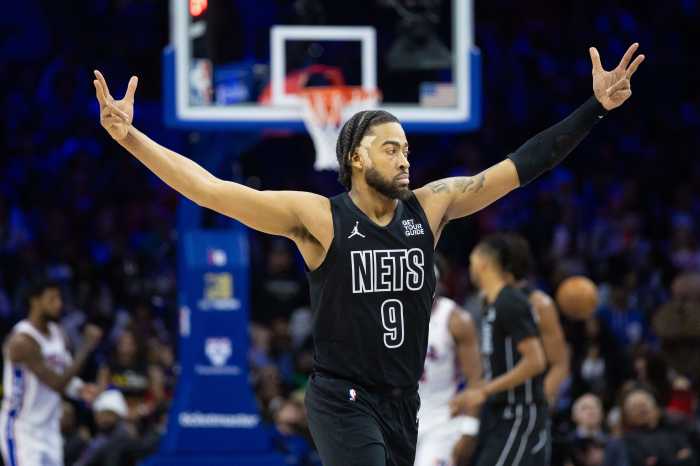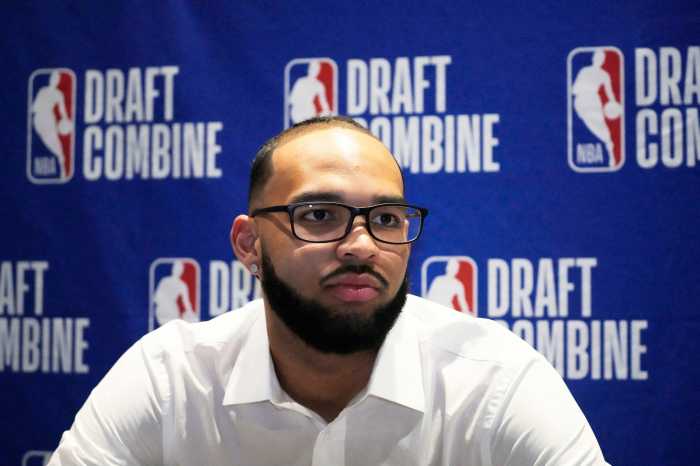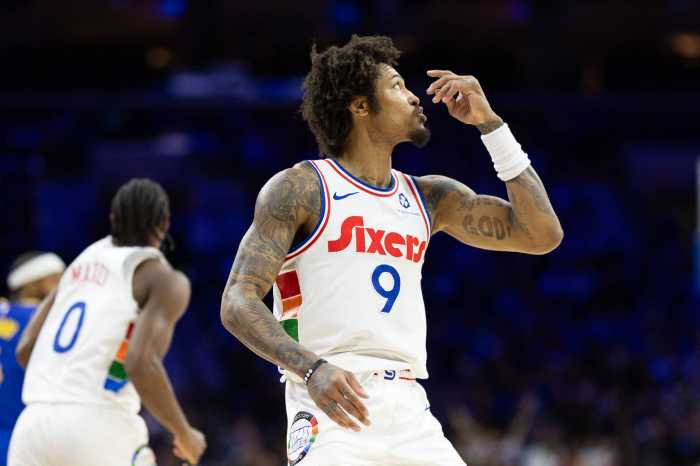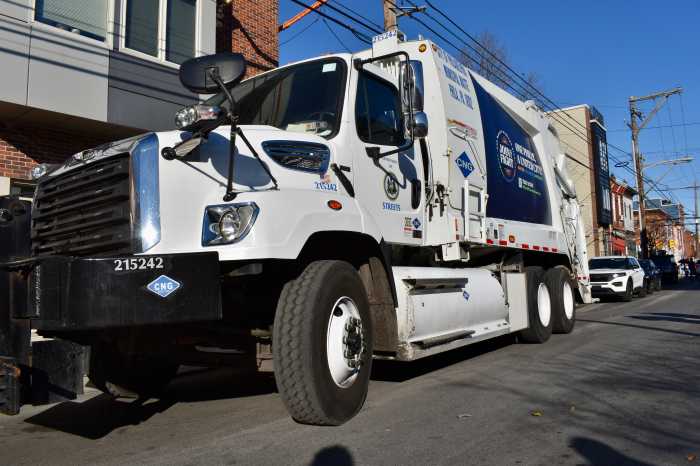As the Philadelphia 76ers head into the NBA trade deadline, they, like everyone else in the league, are looking to get better at some secondary positions. Adding more shooting and defense is a good starting point, as the Sixers’ reserves aren’t exactly what you would call “consistent.”
But the Sixers do have a pretty good bench at this point in the season. Since returning from an injury, guard Tyrese Maxey has taken on a role where he’s coming off the bench while De’Anthony Melton has been starting. While Melton has been up and down with his production, his defense has still been very good, and Maxey, while getting his legs back, has taken advantage of his role. He’s been averaging 18.9 points since his return, and his three-point percentage is back up close to 39%.
While Maxey has excelled in his role, the real issue for the Sixers has been the backup center position. Raise your hand if you’ve heard this before. We saw last year, after Andre Drummond was traded, how much of a mess the position was with Doc Rivers consistently playing DeAndre Jordan.
This year isn’t much different; just the name on the back of the jersey has changed. Montrezl Harrell is the top reserve center for the Sixers, and that’s pretty much all you need to know. While Harrell is still relatively young, at 29 years old, he’s not a player that needs or should be on the court in the playoffs, as his defense and size are both lacking.
Harrell, who’s bulky at close to 240 lbs., is still only 6’7″, and even though the NBA has been sliding into a less positioned play style the past few years, there’s not really a place for an undersized center that can’t really defend. Effort is nice; rebounding and maybe some occasional lobs are also nice. What’s not is that the larger, faster players can take advantage of Harrell, and having any minutes in the playoffs is considered quality.
Harrell just isn’t it for the Sixers. The real issue is that head coach Doc Rivers is inexplicably enamoured with him. When they were together in Los Angeles, it was obvious and a detriment to the team as after being bumped from the playoffs, several players, including Paul George, expressed dissatisfaction at the way Harrell was used. The whole reason he was brought in was that Rivers liked him.
Then there’s a dark horse, the forgotten man. Athletic? Sure. Defensively minded? Of course. Energetic? Absolutely. Foul prone? There’s a touch of that.
Paul Reed is the guy for the Sixers this year; it’s just that the coach hasn’t and probably won’t see it unless Harrell is moved at the deadline. While the Sixers can look for more shooters and floor spacers, they should put some confidence in a young man that’s done all that he’s been asked for the team the past couple of years and has shown when given some consistency, could be a contributor.
Paul Reed is not an All-Star. Hell, he’s not even a starter. But, at 6’9″ and close to 220 lbs., Reed has the size to keep up with other teams defensively. He’s not a scoring machine, but that’s not needed. He’s going to get into some foul trouble. He’s also going to get some rebounds, a couple of steals, and more than likely get you 6-8 points. That’s if he’s given the minutes.
When Reed is given minutes over 12 per game, he’s contributing. When he’s over 20 minutes per game, which he’s had five such games this year, he’s averaging 11.8 points and 10.0 rebounds; certainly adequate numbers. Where Reed is failing is that he’s not getting any minutes most nights.
In the month of January, the Sixers were rolling, and Paul Reed was sitting, appearing in only seven games and only getting 10.2 minutes in those games, giving the Sixers 5.0 points and 4.4 rebounds. Harrell, Rivers preferred backup, played in fourteen games in the month of January, getting 16.2 minutes per game. For that, the Sixers saw 8.3 points and 2.9 rebounds per game.
Their blocks and steals numbers are almost identical, but Reed interrupts more, given more minutes, and can usually be counted on in extended minutes to get you at least one to two of each during a game.
The key for the Sixers is to make sure that All-Star center Joel Embiid isn’t overworked, tired, or injured prior to or during the playoffs if the team is going to have a long run in the postseason.
The key to that is getting Paul Reed some minutes. Embiid, during the playoffs, will probably be getting close to 36-38 minutes per game, so that leaves 10-12 minutes for his backup. In those types of minutes, Reed has shown that he’ll get another six to eight points and four rebounds.
Rumors have already circulated of the Sixers targeting back up big men including Utah’s Jarred Vanderbilt. There’s no reason to look for a backup center on the trade market though as he’s usually sitting on the bench for around 42 minutes per game if he gets up at all. The key for the Sixers would be including Harrell and the $2.5 million salary to get them some more wing help and shooters.




























